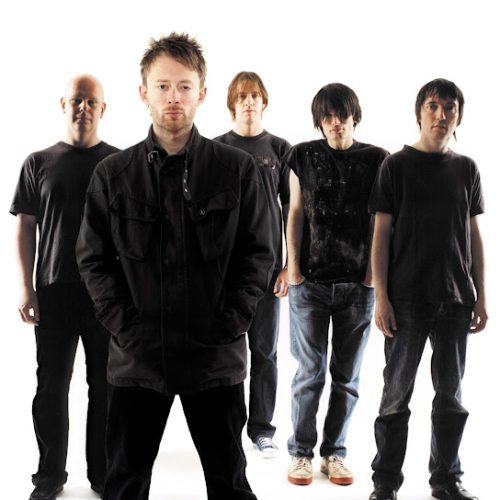Radiohead are good at (and renowned for) upending people’s expectations.
So their lead single from 2016 album A Moon Shaped Pool was what we might call an expected surprise.
Radiohead are sometimes described as alt rock or indie rock. There’s often guitars somewhere, and whilst this album has that feel, the first song everyone heard from it was a dynamic and brave departure.
Brisk strings attack the ears from the start. The musicians are using a technique called col legno which traditionally involves hitting the strings briskly with the back of the bow. But according to Jonny Greenwood, they are using guitar plectrums to do it. This is very Radiohead: do something almost unheard-of to create something brilliant.
So you prepare yourself for an orchestral piece. But this being Radiohead, it’s only a few seconds before a strange electronic texture joins underneath and then what seems like a voice that has been sampled and sped up to create a weird, slightly disturbing, strangely beguiling or comforting ‘eerrrrrr’ sound. Whether the drums are programmed or actually played by Phil Selway is unclear – they have also been affected in some subtle way.
Thom Yorke starts singing, warning us of the dangers of standing up for what’s right and what’s just. Don’t stand out, scream along with the crowd at the persecuted innocent, for fear of being singled out yourself.
There’s a variety of phrases used that evoke the time of witch-hunts:
Cheer at the gallows
Red crosses on wooden doors
If you float you burn
And my particular favourite, Yorke sings earlier on:
Sing a song on the jukebox that goes…
The witch-hunts are going on today, as well as in the past. Later, he changes it to:
Sing the song of sixpence that goes…
Considering Radiohead have made some of the most unsettling rock music of the last 20 years, Thom Yorke’s voice is an extraordinarily beautiful instrument in its own right. Here, this beautiful, angelic voice narrates a horror film, and when it gets to the economic chorus, his voice soars to the heavens as he sings “burn the witch” twice.
The second time he sings it, he adds syllables to it that makes it less recognizable but more affecting. He follows it with:
We know where you live
Just in case you were still thinking of speaking out for what’s right.
During the choruses the strings become more traditionally played in order for the arrangement of the song to keep you on your toes. At the end of the second chorus, the strings take over, building to an urgent, shrieking crescendo before an abrupt stop.
Radiohead have long been purveyors of the problems in society. With “Burn the Witch,” they managed to get a flawless balance of lyric, mood, and delivery that is as listenable as it is unsettling. The lyrics are a nursery rhyme, the arrangement is uneasy, queasily leading you to a worrying conclusion without answers.
The song would be enough without the video using the visual style of a beloved UK children’s TV program. With it, the outcome is one of the best collective artistic endeavors of the last 20 years.
“Burn the Witch” is urgent, catchy, different, and brilliantly conceived. It’s up there as one of Radiohead’s greatest moments.







